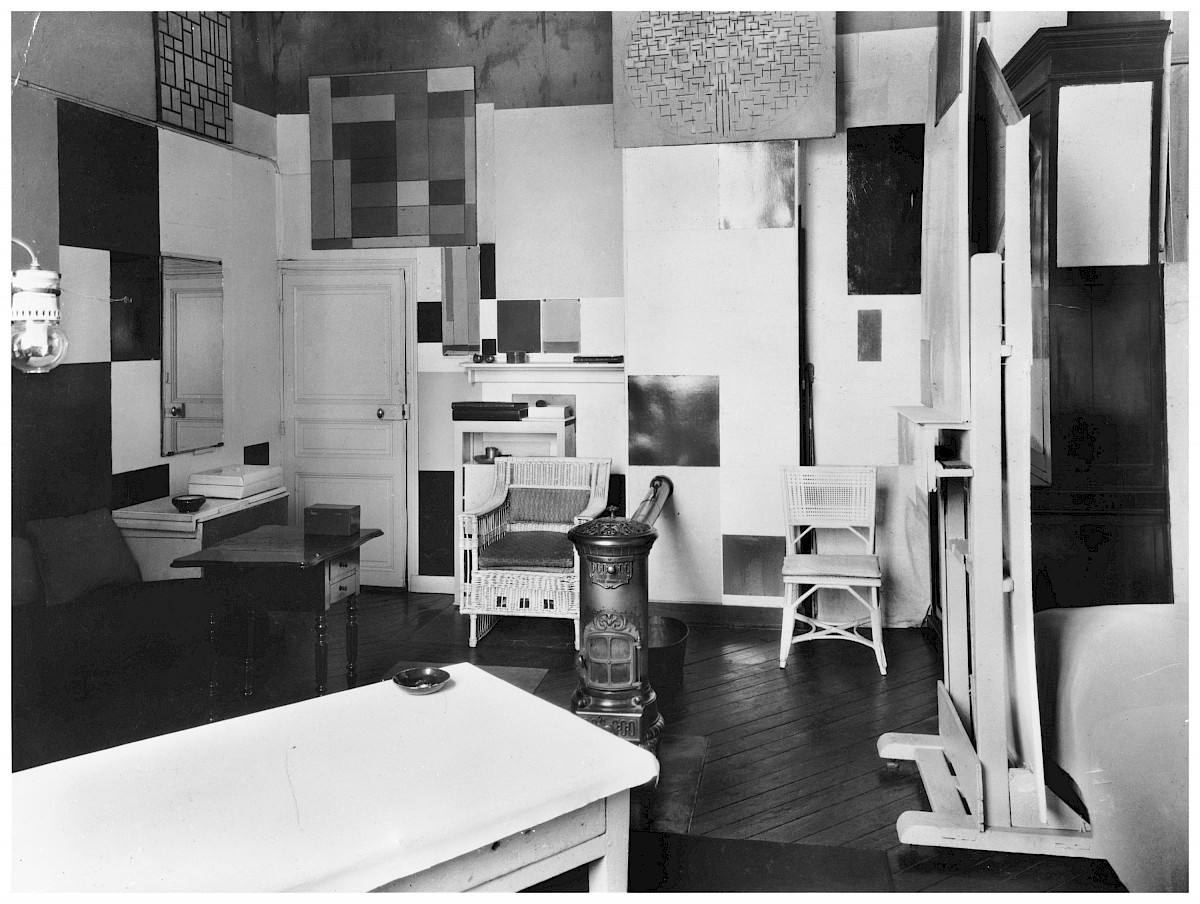What Makes A Good Routine?
 |
Mondrian's studio in Paris |
Routines are probably a fixture of cognitive health. There has to be something that has a familiar pattern that gives you an easy access point to creative work. If there's no pattern and if everything is just noise all the time you just don't know where to begin working. Even when you do begin, and all you encounter is noise, you still have to find a pattern which makes you feel like it's a routine and you're back on track. Otherwise, every day is too different. Perhaps some people thrive on that but there has to be some underlying pattern.
For me, music is a routine that can be varied. The way musicians typically have switched their routines is to change the genre or change the creative process in some way. But it's still a routine which can be productive to some degree.
Good routines also involve good feedback loops: If you can get some kind of feedback loop going, either with your own creative practice or in collaboration with others, that's also a great benefit as well. What is key is going to that same creative head-space all the time which becomes a dynamo, and is crucial to good routines.
6/12/2021
***
From an article about the British artist Celia Paul, and her memoir Self-Portrait:
"Grief and pain are present throughout, but that’s not really the point of Paul’s memoir, which also unfolds as an account of her total dedication to her art, a solitary endeavor always held in tension with her intense love for those closest to her, especially her mother, her late husband Steve, and her son. What most struck me while reading Self-Portrait is Paul’s undivided and unwavering commitment to routine. Her self-imposed asceticism is precisely what enables her to focus—and thereby connect deeply with the people and places that surround her. "

Comments